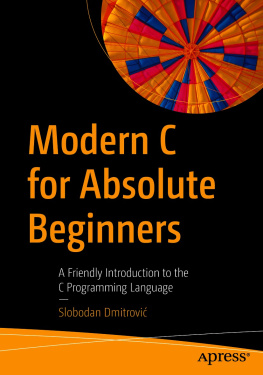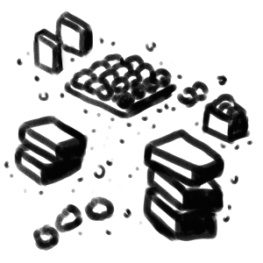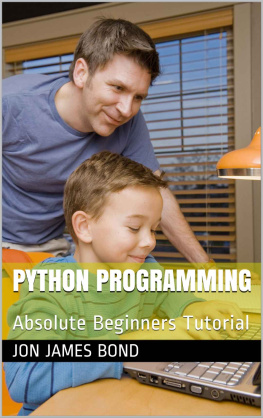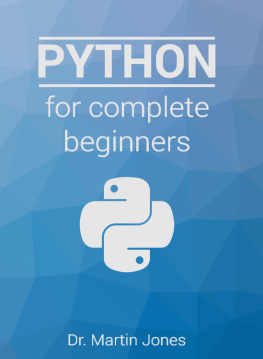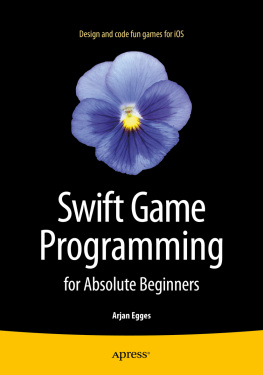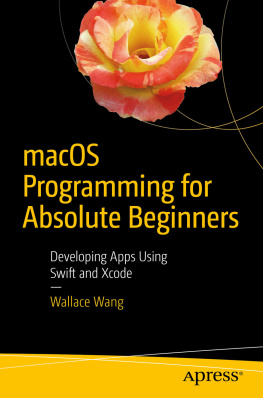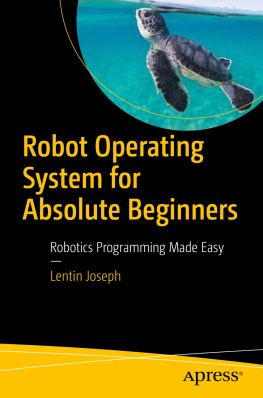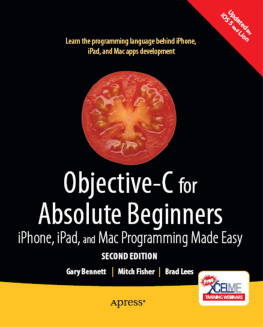Slobodan Dmitrović - Modern C for Absolute Beginners : A Friendly Introduction to the C Programming Language
Here you can read online Slobodan Dmitrović - Modern C for Absolute Beginners : A Friendly Introduction to the C Programming Language full text of the book (entire story) in english for free. Download pdf and epub, get meaning, cover and reviews about this ebook. publisher: Apress, genre: Computer. Description of the work, (preface) as well as reviews are available. Best literature library LitArk.com created for fans of good reading and offers a wide selection of genres:
Romance novel
Science fiction
Adventure
Detective
Science
History
Home and family
Prose
Art
Politics
Computer
Non-fiction
Religion
Business
Children
Humor
Choose a favorite category and find really read worthwhile books. Enjoy immersion in the world of imagination, feel the emotions of the characters or learn something new for yourself, make an fascinating discovery.
- Book:Modern C for Absolute Beginners : A Friendly Introduction to the C Programming Language
- Author:
- Publisher:Apress
- Genre:
- Rating:3 / 5
- Favourites:Add to favourites
- Your mark:
- 60
- 1
- 2
- 3
- 4
- 5
Modern C for Absolute Beginners : A Friendly Introduction to the C Programming Language: summary, description and annotation
We offer to read an annotation, description, summary or preface (depends on what the author of the book "Modern C for Absolute Beginners : A Friendly Introduction to the C Programming Language" wrote himself). If you haven't found the necessary information about the book — write in the comments, we will try to find it.
Slobodan Dmitrović: author's other books
Who wrote Modern C for Absolute Beginners : A Friendly Introduction to the C Programming Language? Find out the surname, the name of the author of the book and a list of all author's works by series.
Modern C for Absolute Beginners : A Friendly Introduction to the C Programming Language — read online for free the complete book (whole text) full work
Below is the text of the book, divided by pages. System saving the place of the last page read, allows you to conveniently read the book "Modern C for Absolute Beginners : A Friendly Introduction to the C Programming Language" online for free, without having to search again every time where you left off. Put a bookmark, and you can go to the page where you finished reading at any time.
Font size:
Interval:
Bookmark:
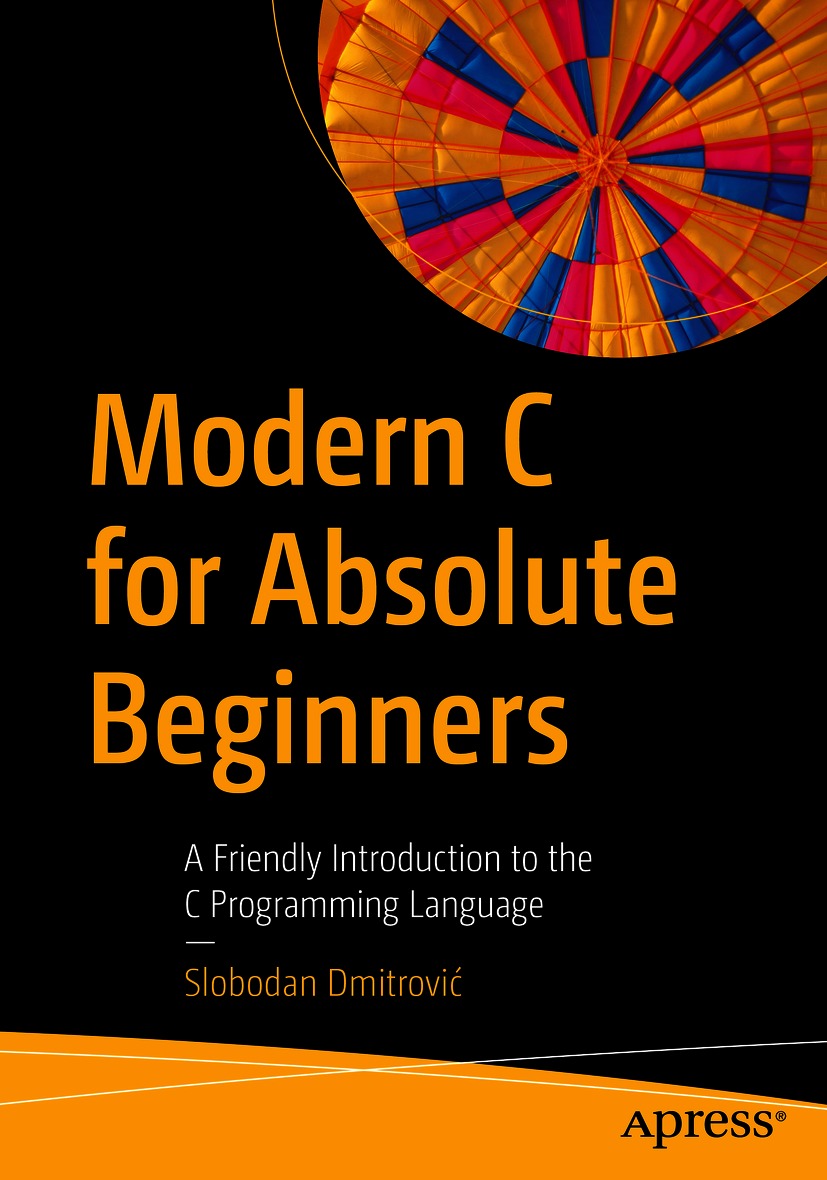

Any source code or other supplementary material referenced by the author in this book is available to readers on GitHub via the books product page, located at www.apress.com/9781484266427 . For more detailed information, please visit http://www.apress.com/source-code .
For Sanja and Katarina
I would like to thank my friends and fellow peers who have supported me in writing my second book.
I am forever indebted to Peter Dunne, Glenn Dufke, Bruce McGee, Tim Crouse, Jens Fudge, Rainer Grimm, and Rob Machin for all their work, help, and support.
I am grateful to the outstanding professionals at Apress who have supported me during the entire writing process.
I am thankful to all of the amazing software developers, architects, and entrepreneurs I met and collaborated with throughout the years.

is a software architect/engineer working with C/C++, Java, and different application containers, in particular, with WebLogic Server. He has developed different applications including JEE/Spring/Python. His areas also include OOP, Java/JEE, Python, design patterns, algorithms, Spring Core/MVC/Security, and microservices. German has worked in performance messaging, Restful API, and transactional systems. For more, see www.linkedin.com/in/german-gonzalez-morris .
Dear reader, congratulations on choosing to learn the C programming language , and thank you for picking up this book. My name is Slobodan Dmitrovi, and I will try to introduce you to a wonderful world of C programming to the best of my abilities. This book is divided into four parts. In Part 1, we cover the C language basics. Part 2 explains the C standard library, and Part 3 introduces us to modern C standards. The final part explains the dos and donts in modern C. Let us get started!
C is a programming language, a general-purpose, procedural, compiled programming language. C language was created by Dennis Ritchie in the late 1960s and early 1970s. The C program is a collection of C source code spread across one or more source and header files. Source files by convention have the .c extension, and header files have the .h extension. Source and header files are plain text files that contain some C code.
C is often used for so-called systems programming, which is operating systems programming, application programming, and embedded systems programming , to name a few. A large portion of Linux and Windows operating systems was programmed using C. C is often used as a replacement for an assembly language. C language constructs efficiently translate to the hardware itself. Whenever we want to get down to the metal, we can opt for C.
gcc as part of the GCC toolchain
Clang as part of the LLVM toolchain
Visual C/C++ compiler as part of the Visual Studio IDE
MinGW a Windows port of the GCC
Here we describe how to install C compilers on Linux and Windows and how to compile and run our programs.
Font size:
Interval:
Bookmark:
Similar books «Modern C for Absolute Beginners : A Friendly Introduction to the C Programming Language»
Look at similar books to Modern C for Absolute Beginners : A Friendly Introduction to the C Programming Language. We have selected literature similar in name and meaning in the hope of providing readers with more options to find new, interesting, not yet read works.
Discussion, reviews of the book Modern C for Absolute Beginners : A Friendly Introduction to the C Programming Language and just readers' own opinions. Leave your comments, write what you think about the work, its meaning or the main characters. Specify what exactly you liked and what you didn't like, and why you think so.

